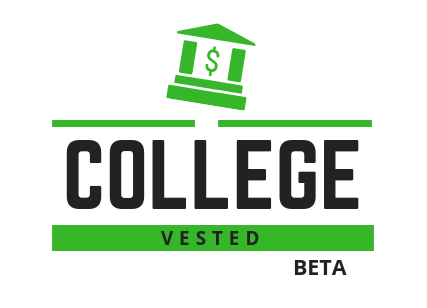
Everything You Need to Know About FAFSA
How To Finesse the FAFSA
Compared to the financial forms you will have to fill out in your adult years, you can think of the FAFSA as a stepping stone to taking charge of your financial future. Applying for financial aid may costs you nothing, but the time spent collecting the necessary documents to finish your FAFSA prolongs the process. For some students this marks the last time they will have to look to their parents for assistance in their young adult lives.
Filling out the FAFSA with confidence helps you sail through life smoothly even after you graduate.
What exactly does FAFSA do for you?
Schools expect the Free Application for Federal Student Aid (FAFSA) each year from you and your parents to determine your eligibility for federal student aid from the government. Depending on the school, not filling out the FAFSA in time can mean not receiving any federal aid from the government or scholarships from the school at all. Some schools use FAFSA to determine which scholarships to give to different students, especially the scholarships for financial need. FAFSA has changed a lot over the years and today many tools exist to make retrieving tax information from the previous year easier. If you end up in a situation where your parent resists sitting down and getting it done for any reason just let them know that the process has simplified since their day. “Here’s the thing, the FAFSA and Department of Education are really concerned with confidentiality and privacy. They allow you to use the IRS tool to make it easier,” Edvisors Senior Contributor and Communications Specialist Elaine Griffin said. Using the IRS tool makes it easier for your parents to give their tax information without all the hassle of putting in their tax documents line by line.
How does the IRS tool work?
FAFSA asks for nothing more than your parent’s tax information from the previous year. In this year’s case, the 2019-2020 application will need 2018 tax returns. To use the IRS tool your parents will just need to enter the information necessary like their social security numbers into FAFSA to use the tool. The tool automatically transfers tax information from the IRS directly into your FAFSA application immediately. This makes it easier to get each line of the tax information correct to avoid going through the verification process.
How does FAFSA work for students who support themselves?
The FAFSA has 9 exemptions for students who cannot provide their parent’s financial information. However, if you do not meet those exemptions then your parents need to help. “Unfortunately, you’re going to need your parents’ information if you want any chance at getting free money. If you are a student in the situation where your parents will not file FAFSA for you, you can still get an unsubsidized loan but you will have to pay that back,” Community America Credit Union Education and Career Consultant Karly Scholl said. Although FAFSA knows that a lot of students end up having to complete it, legally parents have to put in their own tax information.
Does verification mean the government has eyes on you?
When you get a verification email after completing FAFSA it sounds like a scary thing when you, but the start of solving it involves going through your FAFSA line by line. Verification means something about your application didn’t quite match some of the other information on it. Verifications just continue to go on and on if you can’t identify the problem. Unfortunately, FAFSA doesn’t really clarify what needs to be changed since the system makes the assumption that you embellished on purpose.
Verification of what?
Students often find verification one of the most annoying parts of FAFSA, butall students don’t have to go through the verification process. “If you get selected for verification the first time around you’re more than likely going to have to be verified every year after,” Howard University freshman Jada Milligan said. FAFSA verification often happens when something on your FAFSA doesn’t seem like it would fit with the other information that you provide on your application. For example, on FAFSA it asks: does your parent file as single or head of household? When I filled out FAFSA for the first time I made the mistake of naming my dad as “single” on his FAFSA instead of “head of household.” I assumed that he filed taxes as “single” as a single parent, but he should file as “head of household” as a parent instead of a single person who just lives alone. Instead of using the IRS tool, I filled the FAFSA out manually and made this mistake. However, FAFSA did not tell me the specific issue, so I had to speak with a college counselor at my high school to realize the problem. The most frustrating thing about getting chosen for verification includes finding out exactly what to change, so I advise talking with a trusted professional if your parents can’t figure it out either.
When should you complete it?
Although it sounds simple, when to complete FAFSA confuses a good amount of students. Although the time frame to turn it in seems wide, many financial advisors suggest to finish it as soon as possible. “Students sometimes think the deadline for the fall is October 1st, but that’s when it is open to apply. You should be concerned with your state deadline since many are first come first serve starting October 1st,” Griffin said. You can check the Federal Student Aid website for exact dates for your state or a specific school.
How to Compare Award Letters
If deciding where to spend your hard-earned money, don’t jump in without first evaluating your options. “When it comes to looking at financial aid award letters, my first piece of advice is understand what is in it. Every school is going to be a little different. Federal loans and grants can be presented differently, understand what each item is,” Griffin said. Having a conversation with your parents about external factors like the amount of loans offered for your school helps you understand where you stand financially during and after college.
Look Out For Those Capital F.R.E.E. Resources
The nonprofit Community America Credit Union has numerous free resources open 24/7 for you to make use of if you have any questions about your FAFSA. Along with videos addressing specific questions about FAFSA and federal aid, a chatbot on their website answers questions immediately. “My favorite tool is our true cost calculator which shows students the net cost vs the cost of attendance. What is advertised is rarely what students pay, so many students rarely consider a school because of the price tag. We also have two college consultants who meet with individuals through phone calls, face to face, or Skype,” Scholl said. Community America has the helpfulness of a nonprofit and the expertise of a financial institution to get you the help you need for absolutely no cost.
I know plenty of students see the FAFSA as an easy to get through process especially when you have the full support of your parents or guardian. However, with just you and a bunch of empty spaces, cyphering through all the information can be difficult. “I just wish I had someone to do it with me,” Georgia State University freshman Toni Moore said. Although it may seem tedious, in the end the FAFSA teaches you valuable information about how important tax records play into evaluating your financial standing.








